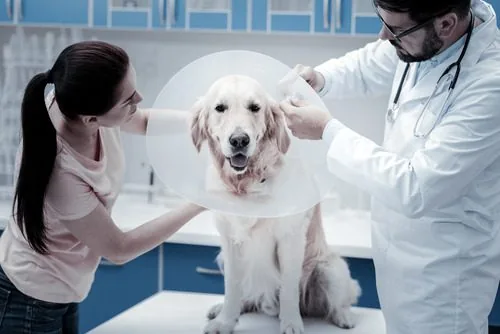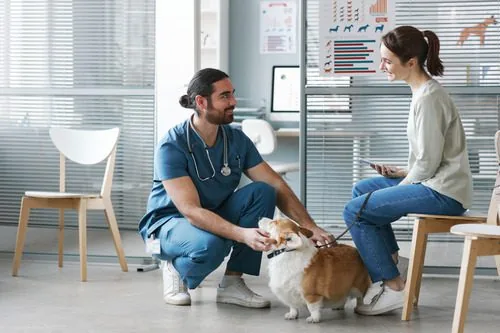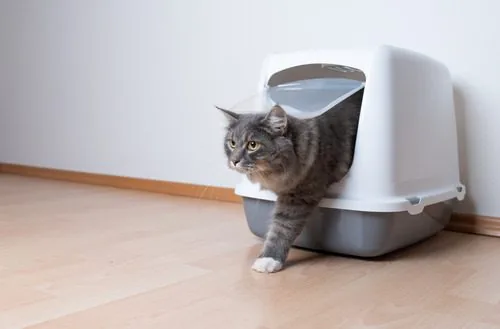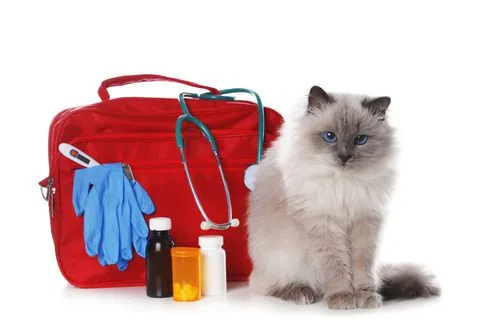Dog Oxygen Chamber: What It Is and How It Works
Oxygen therapy is a lifesaving treatment for dogs with respiratory or cardiovascular issues. In modern veterinary medicine, oxygen chambers are increasingly utilized to deliver critical care to pets in need. If your dog is experiencing severe breathing difficulties or other health challenges, oxygen therapy might be worth exploring. Your veterinarian at Veterinary Healthcare Associates is happy to walk you through the in’s and out’s of dog oxygen therapy, how it works, and when it might be used to help you make informed decisions about your pet’s care.
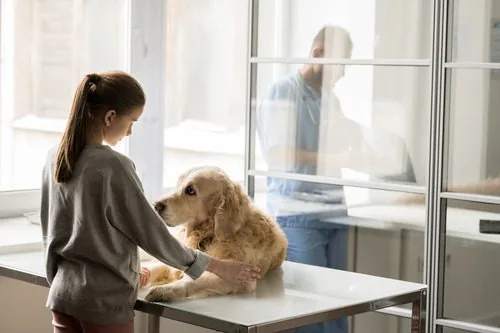
What Is a Dog Oxygen Chamber?
A dog oxygen chamber is a specialized medical device designed to provide concentrated oxygen therapy in a controlled environment. These chambers are often used in veterinary hospitals to help dogs with various medical conditions that impair their ability to breathe or utilize oxygen efficiently. Unlike traditional oxygen delivery methods like masks or nasal cannulas, oxygen chambers allow pets to receive oxygen therapy in a calm, enclosed space.
The chamber is typically made from a clear, durable material, enabling veterinarians to monitor your dog throughout the treatment. It works by supplying oxygen at higher concentrations than what is found in the air we breathe, helping to stabilize pets in critical conditions. For dogs who are too anxious for other forms of oxygen therapy, these chambers also create a stress-free environment, which can be vital to their recovery.
How Does a Dog Oxygen Chamber Work?
Oxygen chambers function by delivering a high concentration of oxygen to the air inside the chamber. This concentrated oxygen is absorbed into your dog’s bloodstream, improving oxygen levels in vital organs and tissues. Dogs who struggle with low oxygen levels due to trauma, disease, or infection can benefit greatly from this therapy.
The Mechanics of an Oxygen Chamber
The chamber is connected to an oxygen supply system, which maintains a consistent flow of oxygen inside the enclosure. Veterinary professionals can adjust the concentration levels and duration of treatment to suit your dog’s specific needs. The temperature and humidity within the chamber are also carefully regulated, ensuring your dog remains comfortable during the therapy session. For critically ill dogs, oxygen therapy can reduce inflammation, improve circulation, and support faster healing. Whether your dog is recovering from surgery or battling a respiratory condition, this advanced technology can be a vital resource for their care.
When Is a Dog Oxygen Chamber Used?
Oxygen chambers are used in a variety of emergency and non-emergency situations. From chronic health conditions to acute injuries, this therapy offers significant benefits to dogs facing breathing or oxygenation challenges.
- Respiratory Distress: Dogs with pneumonia, asthma, or chronic bronchitis often struggle to breathe effectively. Oxygen chambers help alleviate these issues by delivering oxygen directly to their lungs.
- Cardiac Disorders: Heart conditions, such as congestive heart failure, can reduce oxygen levels in the body. An oxygen chamber supports the heart by ensuring sufficient oxygen reaches vital organs.
- Trauma or Shock: Dogs who have experienced trauma, such as a car accident or severe injury, may benefit from oxygen therapy to stabilize their condition.
- Poisoning or Smoke Inhalation: In cases of poisoning or smoke inhalation, oxygen therapy can flush out harmful substances and restore normal oxygen levels.
- Post-Surgical Recovery: Oxygen chambers are often used after surgery to promote healing and support dogs during the recovery process, especially when anesthesia affects their ability to breathe efficiently.
Advantages of Dog Oxygen Chambers
The controlled environment of an oxygen chamber offers many advantages over other methods of oxygen delivery. These benefits go beyond simply stabilizing breathing, helping your dog recover more effectively.
Enhanced Oxygen Absorption
One of the primary benefits of oxygen chambers is their ability to deliver oxygen directly and consistently. Unlike other methods, such as oxygen masks, chambers allow dogs to breathe naturally without any additional stress.
Reduced Anxiety During Treatment
Many dogs are nervous in unfamiliar situations, especially during medical treatments. The enclosed, quiet nature of an oxygen chamber provides a calming environment, making it easier for dogs to relax and receive the care they need.
Support for Critical Conditions
For dogs in critical care, oxygen chambers can mean the difference between life and death. They play a crucial role in stabilizing pets suffering from severe conditions, allowing veterinarians to address the underlying issue more effectively.
Accelerated Healing
By improving oxygen delivery to tissues, oxygen chambers support faster healing for injuries, infections, and post-surgical wounds. This accelerates recovery and can significantly improve your dog’s overall quality of life.
What Happens During a Dog’s Oxygen Chamber Session?
The process of oxygen therapy is carefully monitored by veterinary professionals to ensure your dog’s safety and comfort. Here’s what to expect during your dog’s oxygen therapy:
- Assessment and Preparation: Before beginning therapy, your dog’s condition is evaluated to determine the appropriate oxygen concentration and session length.
- Placement in the Chamber: Your dog is gently placed in the chamber, which is then sealed to maintain the controlled environment.
- Oxygen Delivery: Oxygen flows into the chamber, and your dog begins to breathe it naturally. During the session, veterinary staff monitor your dog’s vital signs and comfort.
- Completion of Therapy: Once the session ends, your dog is removed from the chamber and evaluated to measure the therapy’s effectiveness.
Is a Dog Oxygen Chamber Safe?
Oxygen therapy in a controlled chamber is generally very safe and non-invasive. Because the process is closely supervised by veterinary professionals, the risk of complications is minimal.
Potential Side Effects
While rare, some dogs may experience mild side effects, such as temporary lethargy or minor nasal irritation. However, these effects typically resolve quickly after treatment. If you have concerns about oxygen therapy for your dog, the veterinary team at Veterinary Healthcare Associates can discuss any risks and answer your questions.
Oxygen Therapy at Veterinary Healthcare Associates
If your dog is experiencing breathing difficulties or has a condition that may benefit from oxygen therapy, contact Veterinary Healthcare Associates in Winter Haven, FL. Our advanced facilities include state-of-the-art oxygen chambers designed to provide the highest level of care for your pet. Oxygen therapy can be a lifesaving intervention, and our team is here to guide you through every step of your dog’s treatment plan. Call us today at (863) 324-3340 to learn more or schedule an appointment.
Recent Posts
Laparoscopic Spay vs Traditional Spay: What’s Best for Your Dog?
Laparoscopic Spay vs Traditional Spay: What’s Best for Your Dog? When comparing a laparoscopic spay vs traditional…
Laparoscopic Spay: Everything You Need to Know
Laparoscopic Spay: Everything You Need to Know Laparoscopic spay, also called a “minimally invasive spay,” is an…
When is Dog Diarrhea an Emergency?
When is Dog Diarrhea an Emergency? Dog owners know all too well that occasional digestive upset isn’t…
Is Cat Constipation an Emergency?
Is Cat Constipation an Emergency? Cats are often private about their habits, especially when it comes to…
Feline Emergencies: Warning Signs Your Cat is Crying for Help
Feline Emergencies: Warning Signs Your Cat is Crying for Help Cats have a reputation for being independent,…
About Veterinary Healthcare Associates
Veterinary Healthcare Associates in Winter Haven, FL, was established over 30 years ago as Maxwell Animal Clinic by Dr. John Maxwell. Maxwell Animal Clinic was a one-doctor general practice offering preventive care, dentistry, and standard surgical services to the community. As the years passed, Maxwell Animal Clinic evolved into a thriving 10-doctor general, specialty referral, and emergency veterinary practice.

